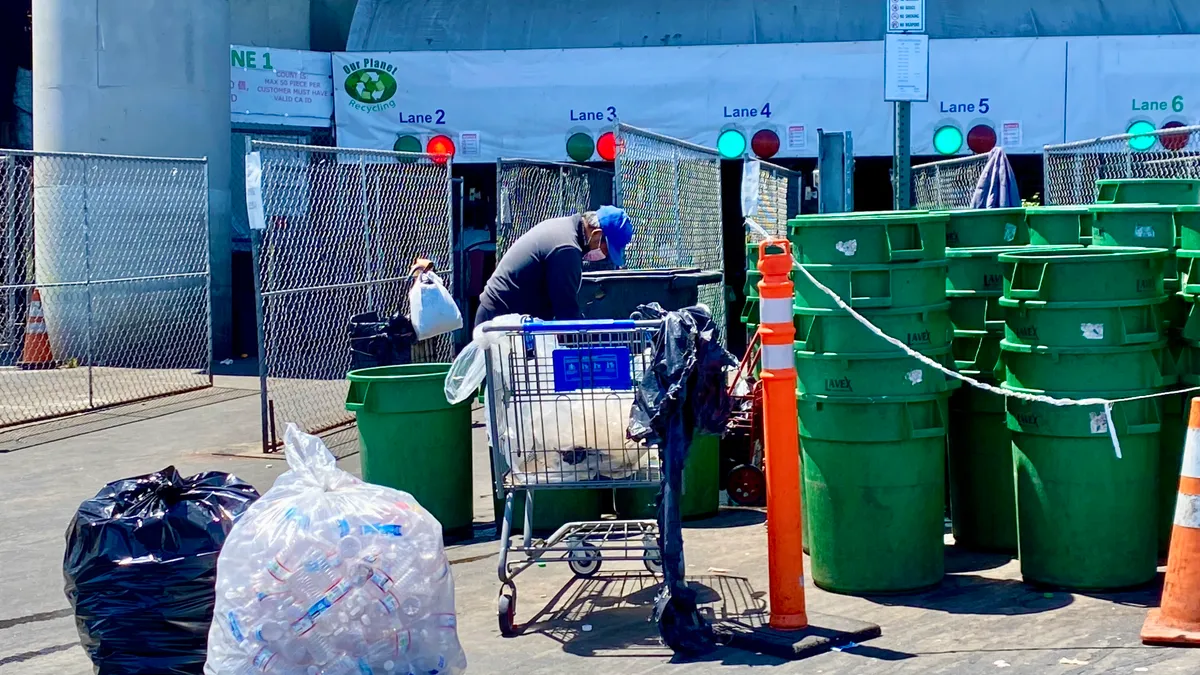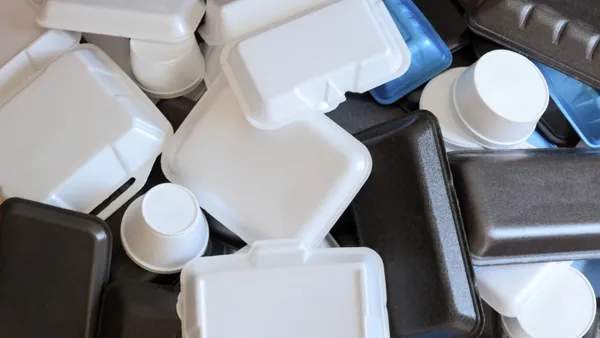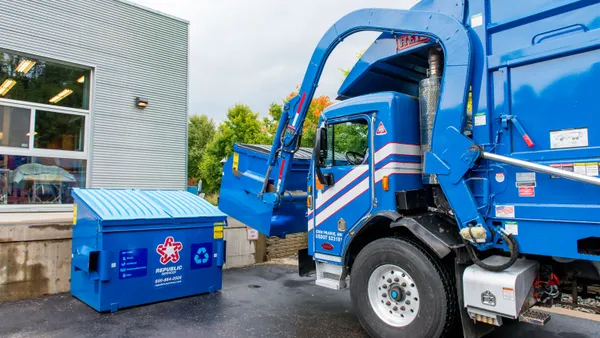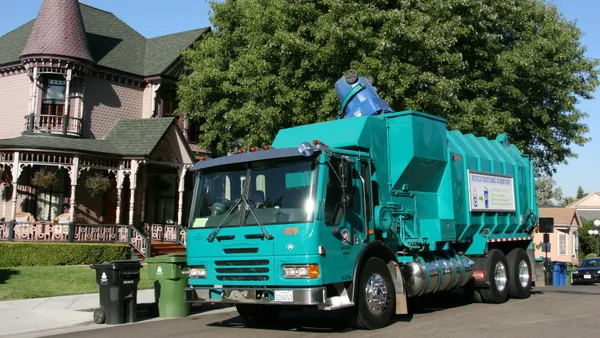UPDATE, October 17, 2019: Greenpeace, The Last Beach Cleanup and Plastic Pollution Coalition have verified commitments to not export any plastics from six U.S. recyclers.
Waste Management wrote in a policy statement that the company "is not shipping plastics collected on its residential recycling routes and processed in its single stream material recovery facilities to locations outside North America." Casella Waste Systems CEO John Casella similarly confirmed “100 percent of our residential plastics recycling volume will be processed and sold in the United States.” Resource Management Companies, Single Stream Recyclers and TFC Recycling also made the same commitment.
Dive Brief:
- Plastics may still be getting exported to overseas markets, but major recycling companies say it isn't coming from them. Responding to an audience question at WasteExpo on May 7, CFOs from Waste Management, Republic Services, Waste Connections, Casella Waste Systems and WCA Waste quickly confirmed they're now keeping all collected plastics domestic.
- While plastic has captured international media attention, for a variety of reasons there is growing sentiment among industry players that a larger story on fiber is being overshadowed. "It makes up around 60-70% of the recycling stream," said Casella CFO Ned Coletta during the panel. "For the U.S. solid waste infrastructure, finding sustainable markets for paper and cardboard is very, very important economically."
- Another theme, which has been echoed repeatedly for many months, is recycling of any kind must now pay for itself, and further domestic market development is crucial. "We can control the types of services that we provide, but if there’s no end market for the recyclables it’s no good," said Waste Connections CFO Mary Anne Whitney.
Dive Insight:
The level of attention, and accompanying outrage, over plastic pollution and production seems to have reached new heights in the wake of China's 2018 scrap import ban and ensuing restrictions in neighboring countries. Amid all of this, overseas restrictions have clearly had an effect. U.S. Census Bureau data, as reported regularly by Resource Recycling, shows export volumes declined 35% from 2017 to 2018 and are down on a monthly year-over-year basis so far in 2019.
According to research published by the Plastic Pollution Coalition, the vast majority of that material was still going to countries with "waste mismanagement" rates of 5% or more. When factoring in material potentially exported from the U.S. to Canada or South Korea, which may then be exported elsewhere, it's possible the number could be higher.
This is seen as a dire issue by many, because any exported plastics not considered worth recovering may get burned in open areas or possibly enter waterways. Working conditions and tangential environmental effects from unregulated facilities are also a concern.
Jan Dell of The Last Beach Cleanup (also the engineer behind the Plastic Pollution Coalition data and the one who posed the export question during the CFO session) is among those who maintain any exported plastic is at risk of contributing to those issues. Others in the field, such as journalist Adam Minter, have pushed back on this narrative and maintain a free market stance that importing countries should be given the agency to do what is considered best for their local economies. Given the recent changes to the Basel Convention, which will require prior consent from importing countries before plastic is exported, all of this is now expected to keep changing in the coming years.
Theoretically, if many of the companies represented at the WasteExpo panel have in fact switched to domestic markets, they may be less affected. Waste Management reported converting to entirely domestic plastic markets years before China's scrap import policies were even announced. The company also made a show of its commitment to the ocean plastics problem earlier this year, though actionable steps remain vague. Others have reported an ongoing inversion of their export to domestic market ratio but hadn't made such definitive commitments in the past.
While notable, the responses from these five companies still leave many questions unanswered. Given the slew of announcements about certain communities having to drop mixed plastics from their curbside programs, it remains unknown how much material has been displaced amid the shift to domestic markets.
It's also unclear where U.S. plastic exports are still coming from if some of the nation's largest recyclers by volume claim to have stopped. Brokers and other private companies are seen as likely sources.













